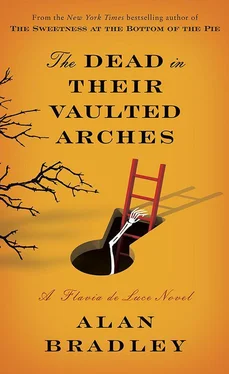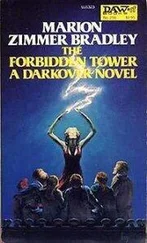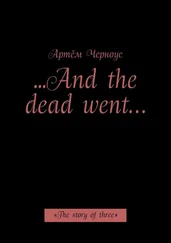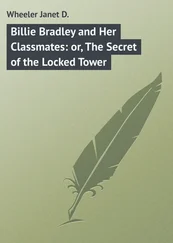“Well, Dr. Darby. I should have thought—”
“Pfah!” Aunt Felicity almost spat. “Dogger has better qualifications than half the medical men in the kingdom.”
“Dogger?”
“Oh, don’t look so shocked, girl. And close your mouth—it’s not at all becoming. I thought you might have worked it out long before this.”
“Well, I’ve always known he has buckets of medical knowledge, but it seemed—”
“ ‘Seemed’ isn’t worth tuppence. How many solicitors or publicans, jockeys or bishops, do you know who could set a broken femur or snick out a pair of infected tonsils?”
“None,” I admitted.
“Precisely,” Aunt Felicity said. “There it was all the time, wasn’t it? As plain as the nose on your face.”
She was taking such great delight in my ignorance that I thought for a moment she was going to crow.
But everything fell suddenly into place. How many times in the past had Dogger described to me the most exact clinical details of various medical conditions? I couldn’t even begin to count the occasions. Why is it, I wondered, that the facts closest to our noses are so often the most overlooked?
I felt an absolute chump. Although I prided myself on being able to put two and two together, for most of my life, I had been adding them up to get three. It was humiliating!
“He was with Father in the prisoner-of-war camp, wasn’t he? In Changi—in Singapore?”
This was a bit of family history I had wheedled out of Mrs. Mullet and her husband, Alf, in particles of gossip too small individually to draw attention to themselves.
“Dogger saved your father’s life on more than one occasion,” she said, her voice suddenly soft. “And for that, he paid the price.”
The light of the flickering candles threw such shifting shadows upon Aunt Felicity’s features that it seemed as if the hovering face of a stranger were telling the tale.
“Your father had been sentenced to death by the Japanese. His crime? Refusing to name those men under his command who had been involved in planning an escape. I’m not going to tell you what they did to him, Flavia: It would not be decent.”
She paused to let me realize what she had just said. “In spite of the primitive conditions, and using not much more than the utensils from a mess kit, Dogger somehow managed to keep your father from bleeding to death.”
My throat was instantly hard and dry. I could not swallow.
“For his troubles, Dogger was sent to work on the Death Railway.”
The Death Railway! The brutal road that had been hacked by prisoners of war for more than two hundred miles through forbidding hills and jungles from Thailand to Burma. I had looked with horror at the ghastly images in the old news magazines: the skeletal laborers, the haunted faces, the crude graves by the wayside. A hundred thousand dead. There was more—much more—some of it too sickening to read.
“For Dogger,” Aunt Felicity went on, “that was only the beginning. He was sent to work on what came to be known as Hellfire Pass, a notorious section of the line upon which he and his fellow prisoners were forced to dig through sheer rock using little more than primitive tools and their own bare hands.”
“How awful,” I said, aware even as I spoke of how trivial my words must sound.
“Cholera broke out, as it often does under such appalling conditions. Dysentery followed by starvation, followed by—
“In spite of his own shocking physical condition, Dogger attempted to deal with the casualties.”
She broke off suddenly. “I think it best at this point, Flavia, to bring down a curtain upon the scene. There are things too terrible to be described by mere words.”
My brain understood what she was saying, even if I did not.
“Your father and Dogger did not meet again until the end of the War, when they were thrown together by chance at a hospital operated by the British Red Cross.
“They didn’t recognize each other until a chaplain introduced them. The padre said later of their reunion that even God cried—”
“Please, Aunt Felicity,” I said. “I don’t want to hear any more.”
“You’re a wise child,” she said. “I don’t want to tell you any more.”
We stood there for a few more minutes saying nothing. Then, without a word, Aunt Felicity turned and left the room, leaving me alone with Harriet.
SEVENTEEN
I LISTENED AT THE door to the low hum of voices outside.
Taking a deep breath and turning the knob, I stepped solemnly into the hall.
“Ladies and gentlemen,” I said. “Friends … neighbors—”
I was trying desperately to think how Father would phrase it. “I know that you’ve been waiting patiently for a very long time, and I can’t tell you how much the family appreciates it. But I’m afraid that we’re going to have to close the house for the rest of this evening. There are, as you can imagine, many details which must be seen to before my mother’s funeral, and I—”
An appeal to their imaginations seemed like an inspired touch, but still, there was a murmur of disappointment.
“It’s all right, ducks,” said the woman with the duck eyes, and I nearly burst into hysterical laughter at my private joke.
“We all know what you’ve been through”—she pronounced it “froo”—“We all know what you’ve been froo, so you don’t have to tell us twice when to clear out.”
“You’re very kind,” I said. “I’m glad you understand. We shall resume in the morning at a quarter past nine.”
By that time, Daffy would be ending her shift, and I, for better or for worse, would have finished most of what I had come to do.
If, as I hoped, history had been made in the night, tomorrow’s early mourners would arrive to find the tomb empty, so to speak.
It promised to be a most interesting day.
The woman with the duck eyes had actually begun to walk away, but now she turned and called back to me, almost desperately: “Miss Harriet babysat me and my sister once. Our mam was taken sudden with the appendix, and Miss Harriet, God bless her, made us brown sugar sangriches.”
I gave her a sad smile: sad because I hated her—no, not hated— envied her for this sudden stabbing memory of Harriet, who had never made brown sugar sandwiches—or any other kind, for that matter—for me, at least that I could remember.
My announcement was relayed from person to person back along the line; people began to turn reluctantly away, and in a few minutes, the hall was empty.
As the last few stragglers made their way down the west staircase, I slipped quietly through the baize door, which opened into the northwest corner of the house, and by a roundabout trek, made my way to the east wing. Again, except for Lena and Undine, there was little danger of a personal encounter.
Within minutes I was on my way back from the laboratory, ticking off once more in my mind a list of the tools I had carefully laid out for myself: tin-snips, torch, gloves, screwdriver, and coal scuttle, to say nothing of the ATP and the thiamine, which, wrapped in handkerchiefs, were stuffed safely into my pocket to keep from breaking or rattling. In the coal scuttle was a brass alarm clock I had brought from my bedroom: a last-minute addition which might have doomed the entire operation had it been forgotten.
Back in Harriet’s boudoir, I leaned thankfully against the door and heaved a sigh of relief. I hadn’t been spotted.
The lock gave a satisfying click as I turned the key, which I then removed and dropped into my pocket.
This is it , I thought, glancing at the clock. Time to show them what you’re made of, Flavia .
It was 7:22.
Time to remove the black pall with which Harriet’s coffin had been draped.
Читать дальше












